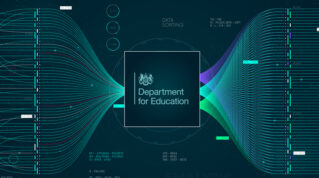Teachers who use ChatGPT alongside a guide on using it effectively can reduce lesson planning time by 31 per cent, a new study suggests.
A trial by the National Foundation for Educational Research, commissioned by the Education Endowment Foundation, investigated teachers’ use of ChatGPT during lesson and resource planning and the impact on their workload.
The randomised control trial involved 259 teachers in 68 secondary schools.
Of those, 129 teachers in 34 schools were randomly chosen to use ChatGPT alongside a guide on effective implementation, to support lesson and resource preparation for their Year 7 and 8 science classes.
The teachers who were allocated to use ChatGPT in the trial “used it to help with tasks that included creating questions and quizzes, generating activity ideas, and tailoring existing materials to specific groups of pupils”.
“On average, teachers used ChatGPT to support a third of their year 7 and 8 science lessons and most commonly to plan for one activity within each lesson.”
The group who used the service cut on average 25.3 minutes from their weekly year 7 and 8 lesson and resource planning time, compared to those who were asked not to use it, or any other generative AI tools.
“This brought their year 7 and 8 planning time down to 56.2 minutes per week compared to 81.5 minutes in the group asked to avoid using any generative AI.
“These findings highlight the potential for tools like ChatGPT to help address the stubborn issue of high workloads for teachers.”
‘Caution’ over lesson quality finding
The research also considered ChatGPT’s impact on lesson quality.
A sample of lesson materials and resources collected from teachers were reviewed by an independent panel of teachers. The analysis “indicated no noticeable difference in quality between the two groups”.
“Teachers’ own perception of the quality of the resources they had produced also aligned with this finding.
“However, as the independent assessment was based on a limited sample of lesson resources submitted by participating teachers, this finding – while promising – should be treated with caution.”
Emily Yeomans, co-chief executive at Education Endowment Foundation, said: “As the teacher recruitment and retention crisis is continuing to grip our education system, there is one issue we hear about again and again – an unmanageable, high workload.
“If AI has the potential to help address this then we must explore not just if, but how we could harness these technologies to save teachers’ time without reducing quality.”
Education minister Stephen Morgan said the research “shows how AI represents an exciting opportunity to give our school leaders and teachers a helping hand with classroom life”.
“That’s why the government has announced £4m investment to make AI tools safer and more reliable for classroom use, and why we continue to engage with the sector, developers and parents to ensure we make tech work for our hard-working teachers and ease the pressures and workload burdens we know are facing the profession.”














Your thoughts